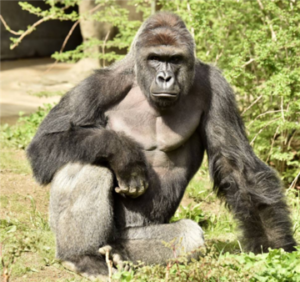What the Cincinnati gorilla incident teaches us about family travel
By now you’ve probably heard the horrible story of the boy who fell into a gorilla enclosure at the Cincinnati Zoo, Harambe (the gorilla who grabbed him), and the zookeepers who shot and killed the gorilla in an attempt to protect the boy’s life.
You also likely have read someone’s opinion on the entire unfortunate incident. Many (unfairly, IMHO) blamed the mother for negligence. Others (also unfairly, IMHO) blamed the zoo for unnecessary violence against the primate. Still others defended the zoo’s actions as sad but appropriate.
One thing nobody really has focused on: What the entire debacle can teach us about family travel.
The primary lesson is more of a reminder than anything else: WATCH YOUR KIDS CLOSELY. This goes beyond sticking your kids with temporary tattoos of your cell phone number before you head out. It’s bigger than coming up with a central meeting spot if you’re separated. Instead it’s as simple as you can get: JUST KEEP TABS ON YOUR KIDDOS AT ALL TIMES. Guard them like a basketball player might guard an opponent—always aware, always ready to anticipate the next move. Should the child’s mother have been paying closer attention to her boy? Yes, it seems she should have. But as the father of three, I can say safely that a lot can happen in an instant, and even the most diligent (and neurotic!) parents—moms and dads, mind you—can lose track of a child for seconds or minutes in a foreign place.
(It happened to Powerwoman and me when we lived in London; we “lost” L for about seven minutes at the Diana Princess of Wales Memorial Playground, and they were the longest minutes of my life. Thankfully, when we found our oldest girl, she and a new friend were playing happily in the belly of a life-sized pirate ship. But I digress.)
Some of the secondary lessons are a bit subtler:
- Take the time to lay down the law. Especially when you’re visiting museums, zoos, or attractions with spaces that aren’t open to the general public, it’s important to set some ground rules and explain to your kids where they can and cannot go. We don’t know if the mom in this case told the kids in her charge that animal enclosures were for animals, but if she had—and if she had explained why—her son may have been more respectful of the barrier.
- Know when to cry uncle. Reports indicated the mother in this case was at the zoo alone with four or five kids, including an infant. That seems like an awful lot for one parent to handle in a place chock-full of distractions for pint-sized minds. Even if you think you’re perfectly capable of parenting a gaggle—I know I think this about myself—in certain situations it’s perfectly acceptable to phone a friend (or mother or mother-in-law) for an extra set of eyes/pair of hands. And if you have any reservations about your ability to monitor your brood in a busy place, DON’T GO UNTIL YOU CAN GO WITH HELP.
- Educate, educate, educate. Every family travel moment provides opportunities to educate our children about the new things they experience. In the case of visiting a zoo, there are countless opportunities to share fun and interesting facts with the kids about the different animals they might see. In the aftermath of this horrible incident, I’ve learned that an adult gorilla has ten times the strength of an adult human. I don’t know if the mom in question shared this information with her kids beforehand, but I’d like to think that if the kids knew this in advance, they would have been that much more aware of keeping a safe distance from the animal on site.
Perhaps the most important family travel lesson from this gorilla incident: Try not to judge other parents. It’s easy to read a few short pieces of information about how other moms and dads fared in an important decision-making situation and be critical of their choices. It’s a lot harder to read the same data and start from a point of compassion. Remember: None of us parents is perfect. We all screw up. Thankfully in this case no humans got seriously hurt. Let’s learn from the mistakes so Harambe doesn’t die in vain.


